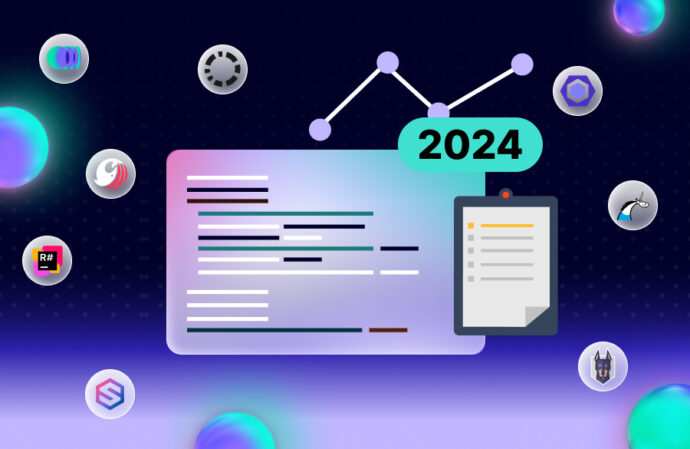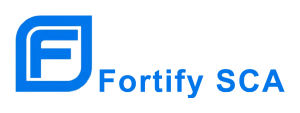
Tired of trying to find a proper tool to run static code analysis on your codes, or are the tools you use not satisfying? Then, keep reading because we are about to reveal the top 8 tools for static code analysis of 2024 that will revolutionize your coding experience.
But first, let’s quickly go through the basics of static code analysis.
What is Static Code Analysis?
Static code analysis is an approach that examines your code without executing it to identify any potential errors, violations of coding standards, and security vulnerabilities. Generally, static code analysis can find,
- Errors in the code (syntax, logic, etc.)
- Security vulnerabilities
- Issues with code quality
- Violations of coding standards and best practices
- Performance issues
To perform static code analysis, there are dedicated tools referred to as Static Code Analysis tools (or Static Source Code Analysis tools). These tools are more professional than regular code analysis tools.
Unlike dynamic code analysis tools, these tools help you create a cleaner, enhanced, secure codebase that meets your quality goals and metrics with minimum bugs and errors.
Without going further, let’s explore some of the best static code analysis tools for 2024.
8 Best Static Code Analysis Tools For 2024
1. qodo (formerly Codium)
qodo (formerly Codium) is one of the best tools you can find to run your static code analysis. It leverages AI to analyze your code before executing it, identify potential bugs and security risks, and suggest improvements.
Some of its impressive features include,
- Code Analysis: Analyze your code thoroughly and write a complete analysis report as text.
- Code Enhancement: Gives you an enhanced and cleaner code.
- Code Improve: Identify bugs and security risks and suggest improvements and best practices to solve them.
- Code Explain: Gives you a detailed overview of the code.
- Generate Test Suite: Generate test cases for different scenarios where you can improve code performance and behavior.
qodo (formerly Codium) can be used as an IDE plugin (Qodo Gen), a Git plugin (Qodo Merge), or a CLI tool (Qodo Cover), allowing seamless integration and experience.
It also supports many programming languages, such as Python, JavaScript, TypeScript, Java, C++, Go, and PHP.
When it comes to pricing, qodo (formerly Codium) is free for individual developers, while there are paid plans with exciting features for teams and enterprises.
2. PVS Studio
PVS Studio is a static code analyzer that helps developers easily detect security vulnerabilities and bugs. It supports code snippets written in C, C++, C# and Java.
The main features it provides as a static code analysis tool include,
- Bug detection: Identify any bugs/errors and provide warnings.
- Code quality suggestions: Analyzes the code and suggests code improvements.
- Vulnerability scanning: Scan potential security risks and vulnerabilities.
- Detailed reporting: Generates comprehensive reports on the findings and suggestions.
PVS Studio provides many integration options, including IDEs, build systems, CI platforms, etc. You can also install this tool on operating systems like Windows, macOS, or Linux.
You have to request the pricing of this tool, and it has flexible pricing options for individuals, teams, enterprises, resellers, etc. Also, it allows for a free trial and is free for students, teachers, and open-source projects.
3. ESlint
ESLint is an open-source project you can integrate and use for static code analysis. It is built to analyze your JavaScript codes and find and fix issues, allowing you to have your code at its best.
It allows you to,
- Find issues: Analyze your code and identify potential bugs.
- Fix problems automatically: Automatically fix most of the identified issues with your code.
- Configuration options: You can customize the tool as needed by creating your own rules and using custom parsers.
You can use ESLint through a supported IDE such as VS Code, Eclipse, and IntelliJ IDEA or integrate it with your CI pipelines. Moreover, you can install it locally using a package manager like npm, yarn, npx, etc.
Since ESLint is an open-source tool, it is free for anyone, and there are no paid plans.
4. SonarQube
SonarQube is a widely used code analysis tool that helps you write clean, reliable, and secure code. Below are some of its key features that allow you to conduct a proper static code analysis.
- Defect issues: Find bugs and issues that may cause unexpected behaviors or problems.
- Vast language coverage: SonarQube supports 30+ programming languages, frameworks, and IaC (Infrastructure as Code) platforms.
- SAST (static application security testing) engine: Uncovers deeply concealed security vulnerabilities using the SAST engine.
- Quality gates: Fails code pipelines when defined code quality metrics are not met.
- Super fast analysis: You can get actionable clean code metrics within minutes.
- Extensive reporting: Gives you well-detailed dashboards and reports on numerous code quality metrics.
SonarQube allows you to integrate it with various DevOps platforms such as Azure DevOps, GitLab, GitHub, BitBucket. and CI/CD tools such as Jenkins.
Regarding the pricing options, SonarQube offers a free Community Edition and paid plans with advanced features for developers, enterprises, and data centers.
5. Fortify Static Code Analyzer
Fortify Static Code Analyzer is one of the best SAST (static application security testing) tools available. It can deeply scan your code, identify potential security vulnerabilities, and suggest mitigation strategies.
Its main features include:
- Comprehensive coverage: Static Code Analyzer has the power to identify 1600+ vulnerability types over 35+ programming languages.
- Comprehensive vulnerability scanning: Deeply scan your code using SAST and DAST methods to identify security vulnerabilities and eliminate them in their early stages.
- Scalability: It scans your code even if it is complex and has a large codebase with thousands of code lines. It also reduces build times by increasing performance and false positives by up to 95%.
Fortify Static Code Analyzer can be integrated with Jenkins, Jira, Azure DevOps, Eclipse, and Microsoft Visual Studio.
Regarding the pricing, you have to request pricing, and there are no free trials.
6. Coverity
Coverity by Synopsys is one of the code scanning tools widely used for static code analysis. It can help you easily identify and fix various issues, improving performance and reducing build times.
Below are the key features it provides.
- Identifying bugs and errors: Analyze your code thoroughly and find possible errors and bugs that may cause unexpected behavior.
- Root cause explanation: After finding issues, Coverity will provide a detailed explanation of each issue’s root cause, allowing you to fix them quickly.
- Vulnerability detection: Fully scans your code, identifies security risks, and provides mitigation guidelines.
- Language coverage: Coverity scans projects built with JavaScript, Java, C, C++, C#, Ruby, and Python.
Coverity can be integrated with GitLab, GitHub, Jenkins, and Travis CI platforms, and it provides plugins for multiple IDEs, including VS Code.
You can use Coverity for free by registering for your open-source project.
7. Codacy
Codacy is a popular code analysis and quality tool that helps you deliver better software. It continuously reviews your code and monitors its quality from the beginning.
It includes features such as:
- Healthy code: Identifies bugs in the code and provides suggestions enforcing code quality, performance, and behavior.
- Complete visibility: Dedicated dashboards allow you to check the health quality of your repositories.
- Risk prioritization: Through security and risk management dashboards, you can prioritize and fix the identified security risks immediately.
- Securing your code: Protect your code with SAST, hard-coded secrets detection, configuring IaC platforms, dynamic application security testing, etc.
Codacy supports a broader range of tools, languages, and frameworks, including GitHub, GitLab, BtBucket, Slack, Jira, Kubernetes, Ruby, JS, Ts, C++, etc.
Codacy is an open-source tool that can be used for free, and pricing plans with more benefits start from $15/month.
8. ReSharper
ReSharper is an extension developed for Visual Studio IDE that provides benefits for .Net Developers. It has a rich set of features, including on-the-fly error detection, quick error correction, and intelligent coding assistance.
As a static code analyzer, it allows users to:
- Support multiple languages: Analyze the quality of your codes developed with C#, VB.NET, XAML, ASP.NET, HTML, and XML.
- Fix issues quickly: You can apply the suggested quick-fix solutions for identified code issues, eliminating code smells and errors.
- Verify compliance: Have your code compliant with coding standards and best practices by removing unused code chunks and making the code cleaner.
Other than these, it includes automatic code generation and code editing helpers.
When it comes to pricing, ReSharper is free for open-source projects, students, and teachers. They offer reasonable paid plans for organizations, individuals, and other categories starting from $13.90/month.
Conclusion
As discussed, static code analysis helps you identify and fix bugs, security vulnerabilities, and coding standards violations in the early stages without executing the codebase. This allows you to have cleaner, well-organized code while reducing errors and
This blog enables you to explore the best static source code analysis tools for 2024 that suit your needs. The insights provided will help you select the right tool so you can ensure your projects remain secure, clean, and well-organized and are built with coding standards and practices.















